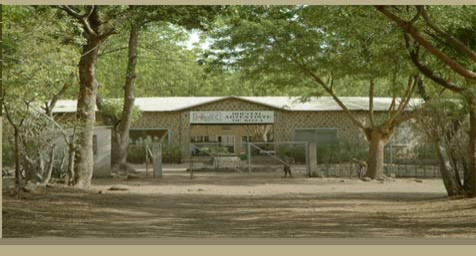Father Georges Vandenbeusch: French Priest Abducted In Cameroon, The Heart Of African Catholicism

A French Catholic priest was kidnapped in the central African nation of Cameroon, in the northern part of the country near the border with Nigeria, raising fears he may have been abducted by the Boko Haram Islamist militants. According to France’s foreign ministry, Father Georges Vandenbeusch was taken early Thursday in a village called Koza only 19 miles from the Nigerian border, an area where Boko Haram is thought to operate.
French radio station RFI reported that Vandenbeusch, who serves as the parish priest of Nguetchewe, a settlement near Koza, was abducted by unknown gunmen and led barefoot through the village before being moved to an unknown location across the border by motorbike. Ironically, the abduction occurred just one day after the U.S. government declared Boko Haram a terrorist organization. "We are working with Cameroonian authorities to secure his release," French government officials said in a statement. "Father Georges chose to remain in his parish to carry out his work," despite warnings from Paris that the area was dangerous to westerners and foreigners due to threats of terrorism and kidnappings.
France24 reported that Boko Haram militants have pushed into Cameroon in recent months as a result of an aggressive crackdown on the group by the Nigerian military. “Terrorism experts in France have been saying they wouldn’t be surprised at all if this [Vandenbeusch’s abduction] was the work of Boko Haram,” said France 24’s international affairs editor Armen Georgian. “We’ve heard that the kidnappers spoke English, which is the lingua franca in neighboring Nigeria.”
French nationals have been targeted before in the region by Boko Haram. In February of this year, a French family comprising seven members, including four children, were seized by Islamic militant kidnappers near the northern Waza National Park in Cameroon before being transported across the border to Nigeria. The Moulin-Fournier family was held for two months before a ransom of more than $3 million was paid, according to BBC, citing confidential Nigerian government files. Reuters reported that it is unclear who paid the ransom, as both French and Cameroonian officials denied doing so, while Nigerian authorities did not comment on the matter.
Cameroon, a former French colony, shares a 1,000-mile border with Nigeria -- although security officials from both nations have cooperated in border patrols, the boundary is too long to properly monitor. Separately, the Catholic Church has made tremendous headway in Cameroon (and Africa as a whole) in recent years. In fact, Pope Benedict XVI even visited the country in 2009. The National Catholic Reporter said that, citing data from the Pew Forum, the percentage of Africans who profess Catholicism has soared from less than 2 percent in 1990 to more than 17 percent by 2005. In Cameroon, almost one-third of the population is Catholic, as the church plays a large role in operating the country’s schools and hospitals.
“We have some of most committed Christians that you can think of, in terms of support for the church, and in terms of their religious and spiritual fervor,” Father Patrick Lafon, former secretary general of the bishops’ conference in Cameroon, told NCR. “Our churches are jammed on Sundays.” Places like Cameroon are also providing more and more priests, as young men in Europe and the U.S. gravitate away from making the church their life’s calling. NCR noted that in the U.S., which has about 70 million Catholics, there are only about 5,000 seminarians. In contrast, Cameroon, which has only about 6 million Catholics, boasts some 1,230 seminarians.
In addition, NCR noted, Cardinal Christian Wiyghan Tumi, the Archbishop Emeritus of Douala (the largest city in Cameroon) has served as one of the most outspoken critics of Paul Biya, the country’s brutal dictator. Tumi’s courage comes in the wake of a number of unsolved murders of Catholic officials in Cameroon over the past 25 years.
© Copyright IBTimes 2025. All rights reserved.





















